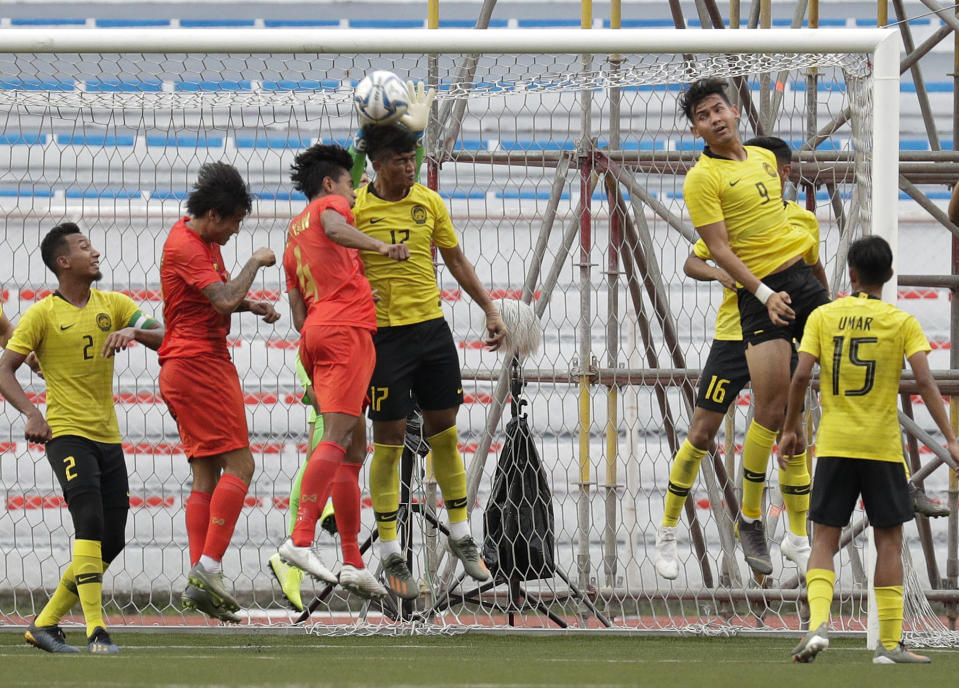COMMENT: SEA Games hosts must not drop the ball on athletes again

SINGAPORE — Some things never change. When I was covering the 2011 SEA Games in Palembang, Indonesia, I arrived at an empty main press centre without work desks or network connections – and just two days before the opening ceremony.
My colleagues and I stared at the space in stunned silence, a sense of dread filling us. How were we supposed to send our news stories back to Singapore? How would we get the scores and results of the various competitions?
Eventually, we were advised by veteran sports journalists that this was par for the course at the biennial Games, and that there was no point complaining and moping.
We got around the media centre by buying USB network sticks at a local computer mart, which could at least connect us to our Singapore offices around the Games venues, albeit at a snail’s pace. We also decided to file our stories back at our own hotel rooms, which at least offered decent wifi connections.
Many instances of logistical madness
This is just one instance of the trials and tribulations of journalists, athletes and officials who have negotiated the logistical madness of the biennial SEA Games.
Having personally covered the Games in three countries, the latest news on the slew of organisational woes at the upcoming Games in the Philippines was depressingly familiar.

Still, reports of athletes stuck for hours at the Manila airport, being taken to the wrong hotel, and not having enough halal food catered for its Muslims athletes are casting a shadow over the hosts’ capabilities, with accusations of ineptitude and, worse, corruption being flung around social media.
Often, it boils down to a lack of understanding of the magnitude of the logistical requirements.
Host nations are understandably eager to showcase as many sports as possible. In some editions, such as the 2011 Games in Palembang and the 2013 Games in the Burmese capital of Naypyidaw, the hosts also wanted to showcase the charms of a developing city or region.
Yet, the organisers were woefully unprepared when the athletes arrived en masse, and found themselves unable to cope with the sudden surge in numbers.
In Naypyidaw, the media centre’s wifi network would cut off every 15 minutes or so, while the mobile network around the then-newly built capital was unable to transmit Whatsapp messages and photos out of the country. Remarkably, my reporting team’s hotel rooms were the only locations in which we could get a decent wifi network, and we had to rush back from daily competitions just to file our news stories.
Unlucky athletes suffer inadequate preparation
We were the lucky ones, considering that some athletes suffered food poisoning in their spartan Games Village accommodation during the 2011 Games.
One of the 31 Singapore athletes who suffered that fate was shooter Jasmine Ser. The 2010 Commonwealth Games gold medallist in the women’s 10m air rifle event could manage only a silver in the same competition in Palembang, after being weakened by her affliction. Imagine her sense of disappointment and injustice.
And critics wonder why SEA Games athletes can’t produce world-class results. How well can they perform if their living and training conditions are compromised?
Yet, host nations have pressed on to include more and more events in their programmes. This year’s SEA Games has a record 56 sports, each needing its unique logistical support and transportation to the numerous venues. Have the organisers bitten off more than they could chew?
Smaller-scale Games would have been a better choice
No one would begrudge a smaller-scale Games. Being the first major sports event hosted by Laos, the organisers of the 2009 Games opted for a modest but manageable 25-sport programme. For a journalist covering the SEA Games for the first time then, I was fortunate to have a serviceable media centre and adequate transportation services to cover the competitions without much fuss.
One hopes the current organisational troubles will ease once the SEA Games proper begins on Saturday (30 November), with enough officials and volunteers present to better solve the logistical problems that will inevitably arise.
It is the least they can do to ensure that every athlete has a fair chance to perform at peak condition. To deny them this chance is unbecoming of any Games host, let alone one which has ambitions of showcasing its organisational prowess.
The author has covered both Singapore and international sports for the past 17 years, and was formerly sports editor of My Paper. The views expressed are his own.
Related stories:


